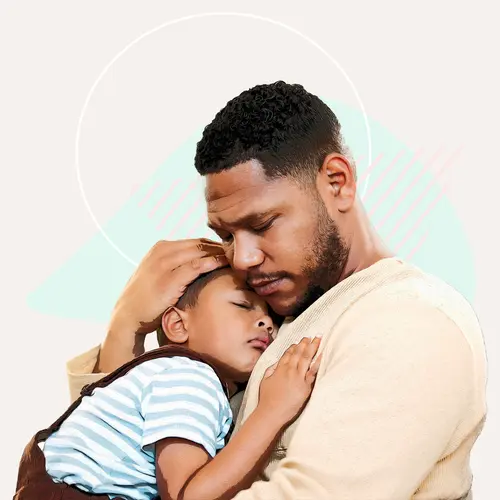If your teen has started to act out and possibly use drugs, it can be tempting to blame their friends.
“Even before they start to use drugs, kids will start to gravitate toward other kids who have a favorable attitude about using,” says Joseph Lee, MD, spokesman for the American Academy of Child & Adolescent Psychiatry.
So there is no doubt about it: Your kids' friends affect their behavior. But it's not always that simple.
Apart from friendships, your child's genes, personality, stresses, and relationships within your family also affect their chances of using drugs.
"You can’t boil it down to one risk factor," says David Pating, MD, chief of addiction medicine at Kaiser Permanente, San Francisco.
As your teen’s parent, you can step in to help them avoid, or recover from, the problem.
Know the pressures. “Parents need to understand that kids live in a world where drugs and alcohol are ever-present,” says Steve Pasierb, president and CEO of The Partnership at Drugfree.org.
You should also be aware that there are synthetic drugs that weren't around when you were growing up. These include things called "bath salts," "K-2," and "spice." Teens are also increasingly abusing medicines, like prescription painkillers and dextromethorphan, the main ingredient in over-the-counter (OTC) cough medicines. The list of drugs you're watching out for may not be up to date.
Check on your own prescription drugs. "The No. 1 problem we’re dealing with as a society is the abuse of prescription medications," Pasierb says. “And the number one source of those medicines is kids’ own homes."
Teens mistakenly believe that abusing medicine is "safer" than abusing other drugs. But it’s not.
Do you keep your own prescription and OTCdrugs in a secure place where your teen can't get to them? If not, change that today.
Don't look the other way. Many parents explain away signs of possible drug use. Others downplay it. That sends the wrong message. In a study of 285 students in 11th grade, kids said their parents were more likely to punish them for being rude than for using drugs or alcohol. Those who considered their parents lax about drugs and alcohol got drunk or stoned much more often.
On the other hand, teens that learn about the dangers of drug and alcohol from their parents are up to 50% less likely to use than those who don’t learn from parents, according to the Partnership at Drugfree.org.
Look to your family tree. Does your family have a history of any kind of addiction, even if it's not to the drug your child may be using? That makes them more likely to become addicted. Even if they're not addicted at this point, consider counseling to help them learn life skills to manage that risk, now and in the long run.
Don't label them "bad." "If your child starts to use, it’s not that he or she is a good kid or a bad kid," Pasierb says. "It’s a bad set of decisions."
Pating's advice: "Let your child know you expect that he will not use drugs, but understand that he is human." For instance, if your teen tells you he drank at a party, talk with him about why he made that decision. “You want to help them think through things so they develop that skill,” Pating says.
Put their safety first. Make sure your teen knows that it's safe for them to come to you. For instance, if they used alcohol or other drugs at a party, you want them to be able to call you for a safe ride home, instead of driving. That doesn't mean there won't be consequences for their actions. It means that you are more concerned about keeping them safe and will figure out the next steps later.
Talk often. Don't try to have one big talk about drugs, medicines, and other substances. Instead, have a series of smaller, more casual conversations. Bring it up in the car, or when someone famous comes out with a drug problem.
"Lead with questions like, 'What are your friends saying about drugs?' And then have the discipline to listen," Pasierb says.
Seek help. If you suspect your child has become addicted or is using drugs, they need swift medical attention. Start with your child's doctor or a counselor trained in this area.
Don’t go it alone. Parents tend to swing between anger and guilt when they think their child is using, Lee says. That's normal, but not helpful. If you're very angry, your child may not talk to you. If you feel guilty, you could be manipulated into being too lenient.
Ideally, you want to be emotionally centered, but that's very hard to do. “It’s such a feeling of betrayal, it’s hard for parents to know what the next step is,” Lee says.
Talking to a professional can help you, and that, in turn, will help your child. If you don't have a counselor, ask your doctor for a referral. The Partnership at Drugfree.org has a toll-free helpline (855-378-4373) to help you get started. So does the Substance Abuse & Mental Health Services Administration (800-662-4357).


